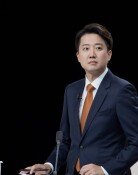Foreign Minister Is Sorry for Remarks
Foreign Minister Is Sorry for Remarks
Posted January. 20, 2007 04:59,
President Roh Moo-hyun and Minister of Foreign Affairs and Trade Song Min-soon caused a stir as they commented on North Koreas abduction and repatriation of prisoners of war.
The Yomiuri Shimbun yesterday quoted multiple sources as saying that top Korean figures including President Roh strongly opposed the issue of North Koreas abduction being included in the chairmans statement at the second East Asia Summit (EAS) held in Cebu, the Philippines on January 15.
The Shimbun reported that the South Korean president subtly refrained from bringing up the issue of abduction in the chairmans statement saying at the summit, The Korean peninsula has a long history, and the inter-Korean relationship is crucial.
However, the presidential office of Cheong Wa Dae made a rebuttal that such an issue was not even on the agenda at the summit, which mainly focused on energy, and refuted that the media coverage is far from the truth.
Meanwhile, Foreign Minister Song also made headlines for his inappropriate remarks. According to the Yomiuri Shimbun, Song expressed regrets over Japans attitude. He reportedly said that the number of Japanese abductees pales in comparison to the hundreds of South Koreans abducted by the North, yet Korea does not make a huge issue out of it.
In a meeting with Grand National Party leadership including floor leader Kim Hyung-Oh at the National Assembly yesterday, Song said in a consistent manner that his ministry has done what it could do for nine family members of POWs who were captured by Chinese police and sent to North Korea after having stayed at lodgings arranged by the Korean Consulate General in Shenyang.
Upon his arrival at the meeting, Song called for cooperation from the GNP. He said that it is not a matter to be dealt with a lopsided view but with utmost care and persistence, defining the nature of the problem.
He also made a litany of excuses. Some parts need to be dealt with officially, but others should be kept confidential. We have continued an unofficial contact with China since October of last year; the very start of the incident with a focus on their safe and swift trip back home. However, as to what happened overseas, we had some issues in the negotiation process with China. A total of 67 POWs returned home, and among them, 38 people have come back since 2003. The government is putting in tremendous efforts.
Compared to the excuses, his apology was cut short and not without yet another excuse. He talked about the ministrys limited role in the negotiations given that the incident took place in China, adding his regrets to the victims and their families.
As to the GNPs proposal to send a fact-finding team to Shenyang at the unofficial meeting, Song said that the foreign ministry would find it difficult to cooperate to publicly proceed with negotiations.
GNP spokesperson Na Kyung-won in a briefing accused the president and the minister of tarnishing the national image by turning a blind eye to peoples lives and human rights and making substandard remarks.
In the meantime, the foreign ministry released a report that stated that Song intended to stress a heavier weight and urgency of the abduction issue in Korea than in Japan at the foreign ministers meeting and highlighted the need for the implementation of the 9.19 joint declaration to realistically approach the matter.






![[오늘의 운세/05월 28일]](https://dimg.donga.com/c/138/175/90/1/wps/NEWS/IMAGE/2025/05/28/131697406.1.jpg)
